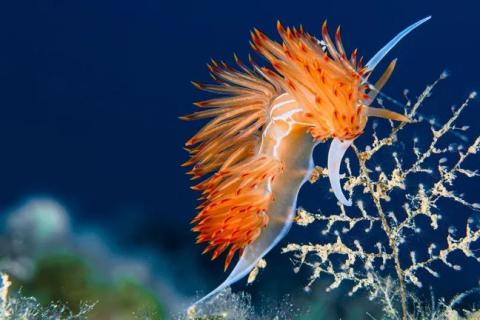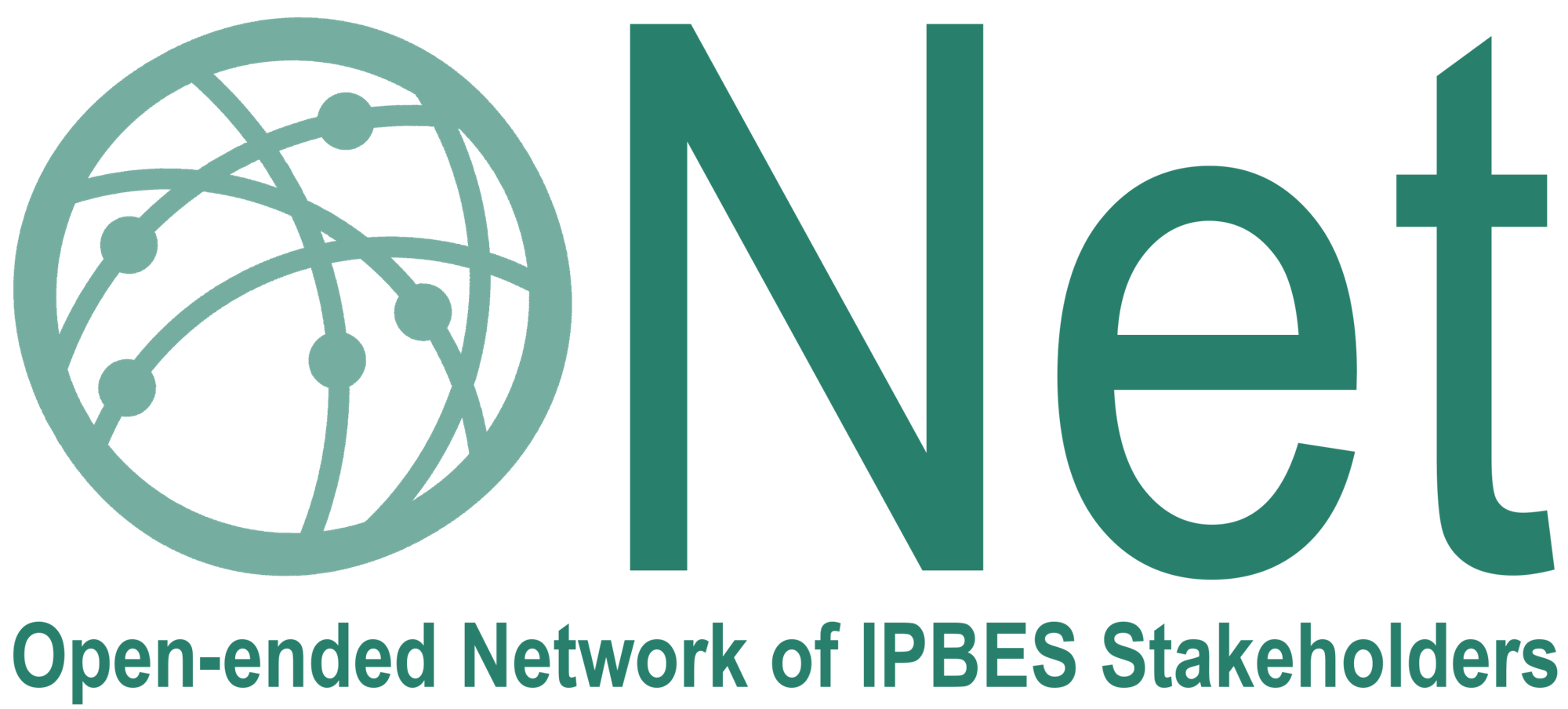Reminder: become an expert or fellow for the 2nd IPBES Global assessment | deadline 28.03.2025

Last updated 23 March 2025.
Apply as an IPBES expert or IPBES fellow for the Second global assessment of biodiversity and ecosystem services: this is your opportunity to co-author a major intergovernmental publication with equally major impact on policymaking.
The Second global assessment will strengthen the science-policy interface on biodiversity and nature’s contributions to people on a range of spatial scales, from the local to the global, by providing the knowledge and the policy support tools needed for informed decision-making. The report will be delivered in 2028.
IPBES reports are approved by the platform's 148 member governments. In addition to national policies, these reports inform multilateral environmental agreements, and they are referenced by stakeholders in a wide range of sectors. This new assessment follows from the 2019 IPBES global assessment, the most famous IPBES report to date.
Do you have questions about the application process? Please see the Q&A below!
Key objectives of the Second global assessment
The Second global assessment seeks to
- support governments and others in implementing multilateral environment agreements and the 2030 Agenda for Sustainable Development.
- help assess progress towards the Kunming-Montreal Global Biodiversity Framework: its 2030 targets and its 2050 goals.
- assess the scientific and technical basis, as well as different knowledge systems and policy-relevant information to achieve the 2050 Vision for Biodiversity: "a world of living in harmony with nature where 'by 2050, biodiversity is valued, conserved, restored and wisely used, maintaining ecosystem services, sustaining a healthy planet and delivering benefits essential for all people.'"
Who IPBES is looking for
- Experts and fellows with experience in regional and global analyses of nature and nature’s contributions to people in terrestrial, inland water, coastal and marine ecosystems.
- Expertise relevant to the global assessment of biodiversity and ecosystem services in one or more disciplines within natural science, social science or humanities. Interdisciplinary backgrounds are particularly welcome.
- Furthermore, experts and fellows on Indigenous and local knowledge, policy experts, and practitioners in a field relevant to this global assessment.
Experts
IPBES is seeking a variety of experts for this major upcoming project: ranging from chairs and authors to editors. They are recruited based on merit and qualification. IPBES will also seek to balance experts for example by discipline, geography, and gender. Nominees' ability to commit time to the assessment process may also be considered. Please note that experts contribute to IPBES pro-bono, although experts from developing countries will receive support to attend author meetings and possibly other relevant meetings.
Fellows
The IPBES fellowship programme is the platform's programme for early career researchers and professionals: up to 35 years of age and preferably not more than 5-7 years after having completed their academic degree. Please see the full list of selection criteria. Selected fellows will contribute to an assigned chapter of the Second global assessment. They will also receive dedicated mentoring and training, and be invited to join the alumni group following the assessment's publication. Please note that fellows contribute to IPBES pro-bono, although fellows from developing countries will receive support to attend author meetings and possibly other relevant meetings.
How to apply
- To apply, please fill in the application form and attach your CV by 28 March 2025.
- You will also need to be nominated by 6 April 2025 as explained in the call: either by a government, or by a suitable organization. At least 80% of experts will be selected among government nominations and up to 20% among other nominations; there is no such quota for fellows. You may wish to consult with your National Focal Point.
Note to members of YESS, an ONet member organization for young researchers and professionals: bar other support, YESS is ready to support the nomination of experts and fellows for IPBES's second global assessment. To apply for a nomination by YESS, please send your CV and a statement explaining how your background and experience align with the scope of this assessment to admin[at]yess-network.org.
Note to members of Indigenous Peoples and local communities: The assessment will include a dedicated chapter on "Different knowledge systems and the role of Indigenous Peoples and local communities." The IPBES technical support unit (TSU) on Indigenous and local knowledge encourages potential Indigenous authors to apply. The TSU is happy to support potential applicants in connecting with their government's national focal point for IPBES and to answer related questions: ilk.tsu.ipbes[at]unesco.org.
>> Official call for experts (EM/2025/03)
>> Application form for experts
>> Official call for fellows (EM/2025/04)
>> Application form for fellows
Further key links
>> Information document on the process and role of experts
>> The IPBES Fellowship Programme
>> IPBES Fellowship Programme nomination and selection processes
>> Procedures for the preparation of Platform deliverables
Q&A: frequently asked questions
Many thanks to YESS and especially the UK IPBES Stakeholder Network for identifying several of the following points. For further information, you may also want to watch the recorded Biodiversa+ Webinar.
- How many positions are there available?
That varies by assessment. The 2019 Global assessment for example had 3 chairs, 3-4 coordinating lead authors per chapter, 1-6 review editors per chapter, up to 4 fellows per chapter, and many lead authors. This assessment is expected to have well over 100 experts and fellows overall.
- Do I get to choose my role in the assessment?
The IPBES Multidisciplinary Expert Panel will invite selected applicants to a specific role. You may of course state a preference in your application, however, if successful you are not guaranteed to be offered that specific role.
- How much time am I expected to contribute as an expert or fellow?
The assessment will be prepared between 2025 and 2028. The time that experts are expected to spend on the assessment during this period varies by role: Review editors are expected to spend 10% of their time on the assessment, Lead Authors at least 15%, Coordinating Lead Authors at least 20%, and Co-Chairs at least 30%. As part of this time commitment, experts are expected to be available for the author meetings. Fellows are expected to spend 15% of their time on the assessment, including author meetings and training.
- Can I apply as both an expert and as a fellow?
Yes, if you meet the criteria for both opportunities. You will have to submit two separate applications, as the application form is different.
- How strict is the age limit of 35 years at the time of application for Fellows?
IPBES does intend its Fellowship Programme for early career individuals, thus there is an age limit. However, there may be some flexibility depending on individual circumstances: if that applies to you, please explain your circumstances clearly in your application.
- Potential fellows are asked to apply within 5-7 years of their degree. If I hold multiple degrees, which one counts?
The latest degree that you have completed.
- Which government will typically nominate me?
Normally, you can apply through the Government (National Focal Point) of the country for which you hold nationality or which you work in. Thus, you may be nominated by a government with which you do not hold nationality; however, travel support for those from developing countries is provided based on nationality.
- Does an organization require Observer status or any other specific status with IPBES to nominate me?
No. Any suitable organization with a relevant background is invited to nominate applicants: such organizations may include for example NGOs, academic institutions, the private sector, or charities.
- Does it make a difference who nominates me?
According to agreed IPBES procedures, at least 80% of experts will be selected among government nominees. There is no such quota for fellows. Furthermore, IPBES seeks to balance experts by geographic background. Typically, the geographic group 'Western Europe and Others' puts forward the highest number of nominations, thus these nominees may face higher competition than those from the other four groups (Africa, Asia-Pacific, Eastern Europe, Latin America and the Caribbean). However, there are no set quotas in this regard and highly qualified experts may be selected from any region.
- Is there a limit how many people a government or organization may nominate?
No, nominating institutions may put forward as many applicants as they choose. However, some governments especially have a pre-selection process in place: please enquire with your potential nominators.
- The application form is asking me whether I am a social scientist or a natural scientist. What do I do if I am both?
Historically, IPBES has identified a shortage in experts with a background in the social sciences and humanities. On the other hand, interdisciplinary expertise is particularly welcome. Please detail all your expertise and experience in your application.
- Do I need to attend author meetings in person or may I attend online?
There will be a mix or in-person and online meetings. You are usually expected to attend in-person meetings in person.
- Where will the author meetings and training events for fellows take place?
Unfortunately, that is hard to tell at this stage for various reasons. However, the locations will always be shared many months in advance to give you time to make your travel arrangements.
- Is there any financial support available from IPBES?
Experts and fellows contribute their work pro-bono and are therefore not remunerated by IPBES. However, employers and governments may be supportive of their experts and fellows, so please enquire. Specifically for experts and fellows from developing countries, IPBES does provide travel support based on their nationality.
- I need to modify my application after I have submitted it. What do I do?
Please email the IPBES Secretariat at mea-ipbes-secretariat[at]un.org.
Photo by atese: Nudibranch photographed in Turkey, one in a group of about 3000 species of marine molluscs. As adults, these animals have no shell and are often called 'sea slugs'. Ocean biodiversity is expected to be a major topic of the Second global assessment. Get this image and many more from the IPBES Virtual Backgrounds 2025.
